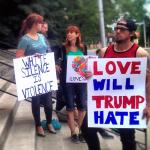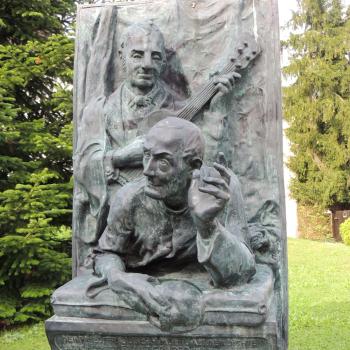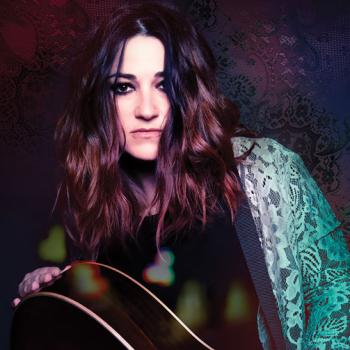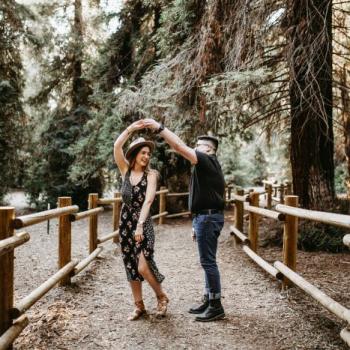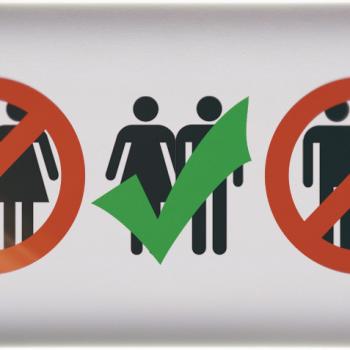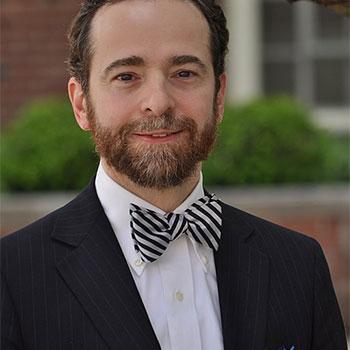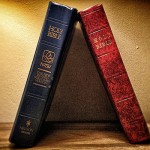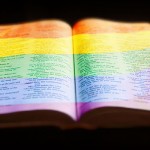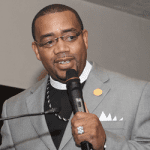This guest post is by Ellen Kozisek.
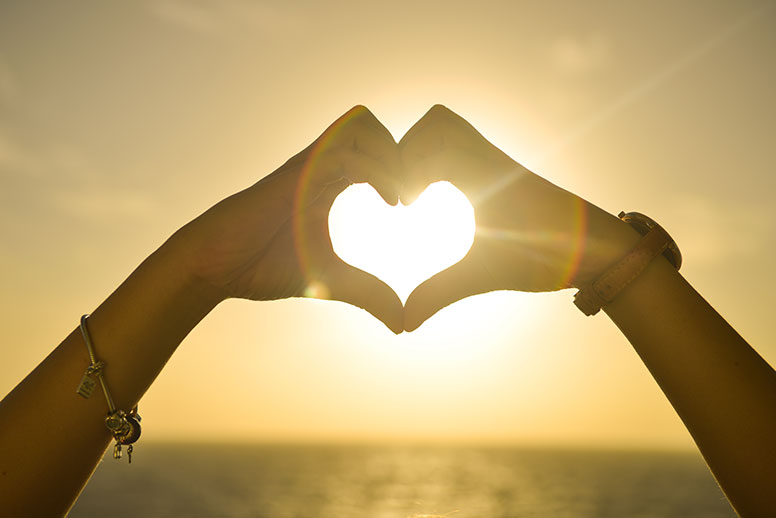
Growing up, homosexuality wasn’t addressed in my religious education — or elsewhere, for that matter. I wasn’t taught that it was bad, not because I had enlightened teachers, but simply because it wasn’t seen as an issue. Or so it seems from what I remember. My experience was that homosexuality was something out there in the greater world, but not an issue for me or the people in my life. (I can see now, though, how coming to terms with being homosexual could be a challenging process when coming out of a similar experience growing up.)
In my religious education I learned about morality. I learned that we are responsible for making good moral choices. And that the Holy Spirit guides each of us. I came to understand that we each are responsible for choosing to do what is right in our own life. The church guides us and helps us, but we, ultimately, are responsible for choosing what’s right.
I also learned that we are not supposed to judge others, that judgment belongs to God. This value is central to who I am. I learned that we are supposed to love one another. Everyone. Love your enemy. If they are human, love them. Loving others and not judging them fit together closely for me.
Along with that, I also always understood homosexuality as something innate. Finding one’s own gender attractive is not something one chooses. And, thus, not something that can be a sin.
Because of all that I came to the viewpoint, as far as looking at and understanding homosexuality, that each homosexual person must make their own choices about what’s right or wrong for them. It’s not up to me (a heterosexual) to decide if homosexual relationships are right or wrong. That is something for each person to decide on their own for themselves. With help from the community, yes, but making their own choice rather than blindly following.
Me, I am called to love those who choose such relationships — whatever my opinion of a particular relationship choice. I am called to see them as human, as every bit as human as I am. To love them. To see them as an “us,” not a “them.” Without even considering whether their relationship choices are right or wrong, I know I’m supposed to love them, to see them as a whole person, and not to judge them. And to respect their right and ability to make their own life choices, based on their own understanding of right and wrong.
I’m pretty thoroughly heterosexual. The morality of homosexual relationships isn’t an issue I’ve ever had to consider in my own life. But I do bring some of what I understand of myself to my understanding of homosexuality. What I feel for a man I find attractive, even when I can’t act on that attraction, isn’t wrong, or dirty, or sinful. There’s beauty in being able to see someone that way. And it doesn’t make sense to me to think that the same reaction is wrong or bad when a man feels it. Love is love.
My church, the Roman Catholic, says that homosexuals are called to celibacy. That is, to not have a romantic or sexual relationship in their lives. But, me, I look at what I see in the lives of actual homosexuals. What I see is that most homosexuals aren’t called to celibacy. They are called to the same kind of relationships as us straight people. And homosexuals don’t do any worse a job at these relationships and making choices about them than us heterosexuals do.
Many homosexuals are called to a lifelong, committed, monogamous relationship with someone of the same gender. Transgender persons and others who don’t fit into the typical male/female binary often also feel that call to a lifelong, committed, monogamous relationship. They deserve the right to make that choice. And, from what I see, many people have made the right choice.
Photo via Stokpic.
About Ellen Kozisek
Ellen Kozisek is a lifelong Catholic who loves music and sings in her church choir, and believes the meaning of religion lies beyond the literal. She works at a public library, where she enjoys helping people find information and entertainment and use the computers. She lives in Kansas City, Kansas.


